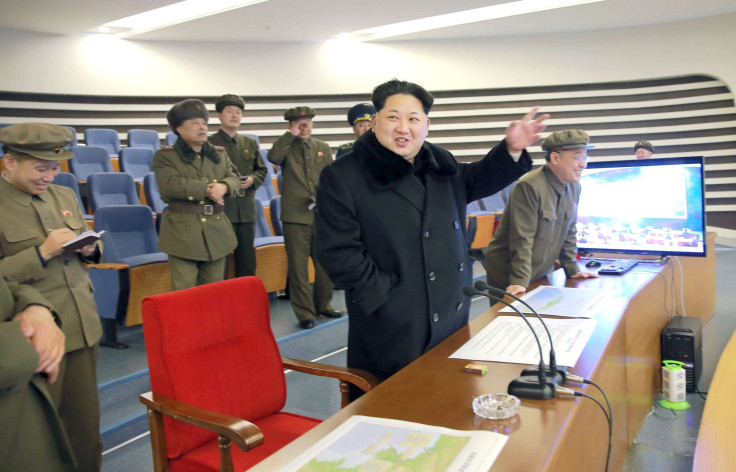North Korea Rocket Launch: South Korea On High Alert As Military Beefs Up Surveillance, Foreign Minister To Visit UN

South Korea’s presidential office announced Monday that the country was on high alert to detect further provocations from rival North Korea, which fired a long-range rocket Sunday that could be used to mount a nuclear warhead. While the United Nations announced that more sanctions would be imposed against Pyongyang over the launch, a North Korean patrol boat crossed the maritime border between the two countries Monday.
South Korean President Park Geun-hye is set to be briefed on the additional provocations by Pyongyang and will also check readiness of the country’s military to respond to such incidents, the presidential office said Monday, according to Yonhap.
The U.N. Security Council condemned the test in an emergency session and said that new sanctions would be imposed against the country. South Korea and the U.S. also said, according to Yonhap, that they have begun talks over the “earliest possible” time to send an advanced U.S. missile defense system to South Korea.
"Security of South Korea and its people is exposed to threats as nobody knows how North Korea will make reckless provocations," Park said Sunday, according to Yonhap.
The South Korean Navy also fired five rounds of warning shots against the patrol boat from North Korea that trespassed the maritime border on the Yellow Sea, Yonhap reported. The boat went back 20 minutes after it crossed the border, which was drawn unilaterally by the U.S.-led United Nations Command after the war between the two Koreas ended. North Korea does not acknowledge the border.
“The South Korean military is on high alert, beefing up surveillance near the NLL and monitoring any abnormal activities by North Korean soldiers,” a military official, said, according to Yonhap. Gen. Lee Sun-jin, chairman of South Korea's Joint Chiefs of Staff, said Sunday, according to Yonhap that Pyongyang is expected to make more provocations.
Seoul also said that it will expand its loudspeaker broadcasts near the border against North Korea, in an ongoing campaign since the latter conducted a nuclear test on Jan. 6. The U.S. and China had began discussing a U.N. sanctions resolutions following that test.
South Korea's Foreign Minister Yun Byung-se is also planning to visit the U.N. headquarters in New York this week to urge the Security Council to bring forth tougher resolutios against Pyongyang, Yonhap said in another report, citing the ministry. Yun is set to meet U.N. Secretary-General Ban Ki-moon, U.S. Secretary of State John Kerry, foreign ministers of different European countries to the U.N. and other top diplomats, during his visit.
North Korea had said Sunday that the tested satellite, Kwangmyongsong-4, named after the late Kim Jong Il, was a “complete success.”
North Korea's National Aerospace Development Administration called the launch "an epochal event in developing the country's science, technology, economy and defense capability by legitimately exercising the right to use space for independent and peaceful purposes," according to Reuters.
David Wright, co-director and senior scientist at the Global Security Program of the Union of Concerned Scientists, said, according to Reuters: “If it can communicate with the Kwangmyongsong-4, North Korea will learn about operating a satellite in space,” adding: “Even if not, it gained experience with launching and learned more about the reliability of its rocket systems.”
Pyongyang had reportedly informed the U.N. of the planned launch of the rocket carrying an Earth observation satellite, but other governments believe it to be a long-range missile test. Pyongyang had given a time frame of Feb. 8 to Feb. 25 for the test, but it conducted the test Sunday due to clear weather.
U.S. Ambassador to the U.N. Samantha Power said, according to Reuters: “We will ensure that the Security Council imposes serious consequences. DPRK's (North Korea) latest transgressions require our response to be even firmer.”
© Copyright IBTimes 2025. All rights reserved.






















